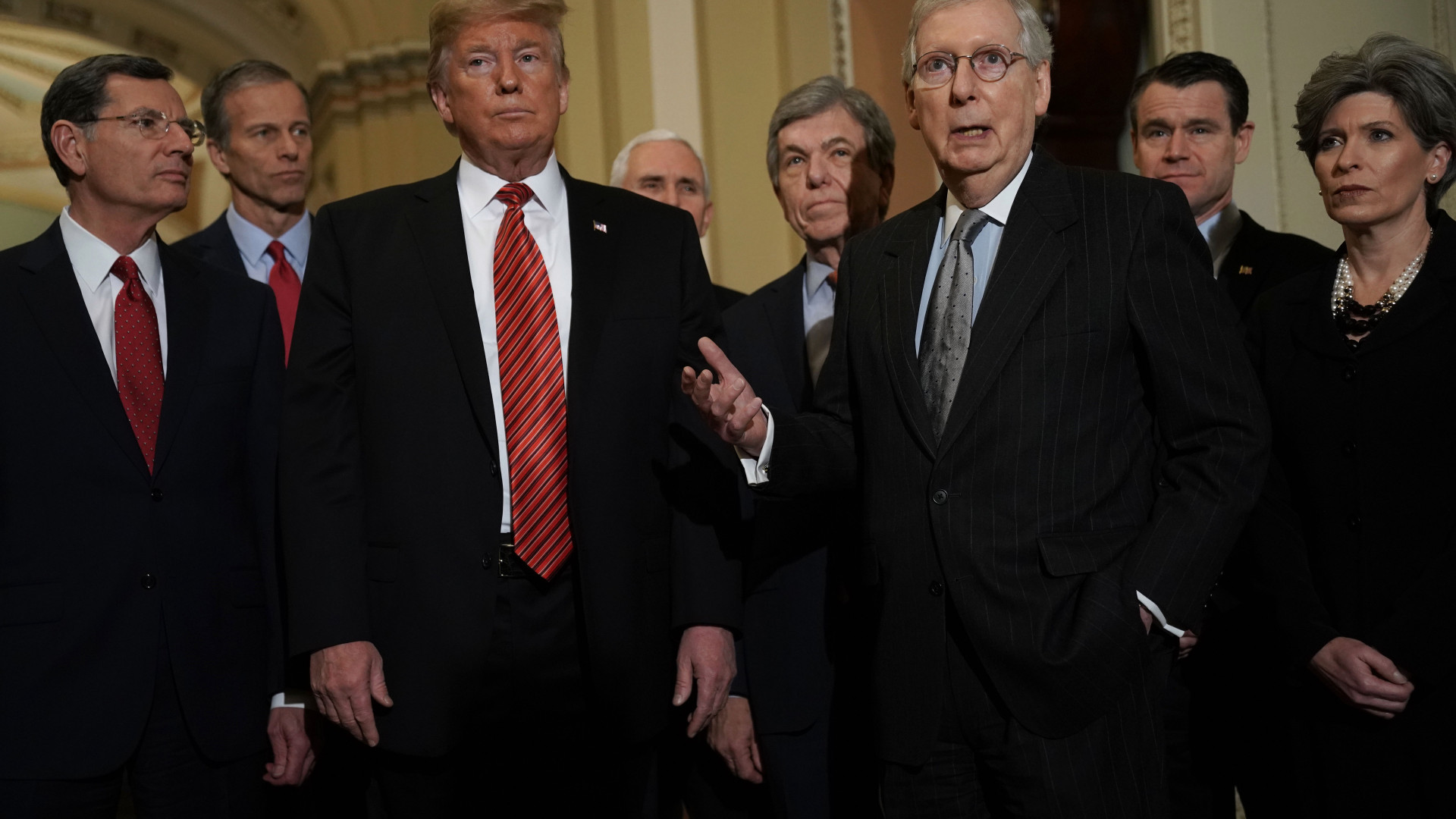On Thursday, 12 Republican senators joined all 47 Democrats to overturn the national emergency declaration issued last month by President Donald Trump to wrangle the necessary taxpayer dollars to build his vanity wall along the southern U.S. border.
The immediate ramifications of the bill’s passage were rendered moot, however, because Trump vetoed the bill Friday, the first time he has wielded his veto pen.
An effort by House Democrats to overturn the veto will likely fall well short of the needed two-thirds majority. But the large number of Republican defections in the Senate could end up being a significant inflection point in the second half of Trump’s term.
As early as 2015, when Trump announced his campaign for president, several Republicans in the Senate hardly bothered to mask their contempt for him and his acolytes. Even as the GOP seized control of the government, Trump faced vocal dissent from the likes of Sen. Susan Collins (R-ME), former Sen. Jeff Flake (R-AZ) and the late Sen. John McCain (R-AZ). Every now and again, one or more would push back against the White House, before wilting under pressure from colleagues and falling back into line.
But never in the Trump era have many Senate Republicans defected from the president as publicly as they did on Thursday. That begs the question: why now?
Why, after so many unpopular, dangerous decisions by this administration — from kidnapping and imprisoning children to appeasing North Korean dictator Kim Jong Un to undermining U.S. military readiness — have a meaningful number of Republicans finally decided to make their voices known? There may be no single answer.
It could be a political decision. Many Republicans have voiced concern that condoning Trump’s emergency declaration would pave the way for the next Democratic president to respond in kind.
“The next president will have every excuse, opening, and reason to use emergency powers to act on things that are anathema to them,” said Norm Ornstein, a resident scholar at the conservative American Enterprise Institute.
“The argument will be, ‘If you can make up an emergency on the border, why not talk about a real emergency like climate change? Or lack of health care?’” Ornstein said.
Other political observers reckon the decision has just as much to do with preserving the sanctity of the Senate itself.
“For quite a while now, there has been a small group of thoughtful senators who have been concerned about the decline in influence of the United States Senate,” said Ross Baker, a distinguished professor of political science at Rutgers University in New Jersey. “I think what we saw was an institutional pushback, and from senators concerned with their own political vulnerability.”
The 12 dissenting senators comprised an odd consortium of the Republican caucus. Libertarians like Rand Paul (R-KY) and Mike Lee (R-UT) were joined by some of the chamber’s great equivocators like Marco Rubio (R-FL) and Mitt Romney (R-UT), alongside staunch institutionalists like Roy Blunt (R-MO) and Lamar Alexander (R-TN).
“I think we’re going to look back on this as an important element in the relationship between Senate Republicans and President Trump,” Baker said of the defecting votes. “I think these senators are trying it out on this one. Can they withstand the wrath of the Trump base?”
With the next election cycle on the horizon, Ornstein is skeptical any vulnerable Republican will even try.
“It’s certainly striking that a dozen Republican senators took on the emergency declaration,” he told ThinkProgress. But he pointed to recent polling from Gallup, which found the biggest partisan gap in history in the presidential approval rating.
Only 4 percent of Democrats approve of the job Trump has done, compared to 90 percent of Republicans. For senators like Thom Tillis (R-NC) — who went so far as to pen an op-ed forcefully stating his opposition to the emergency declaration — a possible primary challenge during his reelection bid next year was enough of a threat. He voted to uphold the emergency declaration.
Nevertheless, there does appear to be growing unease within Republican ranks about executive overreach. The emergency declaration by the White House speaks to a fear that “if Trump gets away with this one, there will be others, and the others could be pretty disastrous,” said Ornstein, who went on to quote a famous utterance from the late Sen. Daniel Patrick Moynihan (D-NY).
“Once you define deviancy down,” he said, “it goes further down.”


